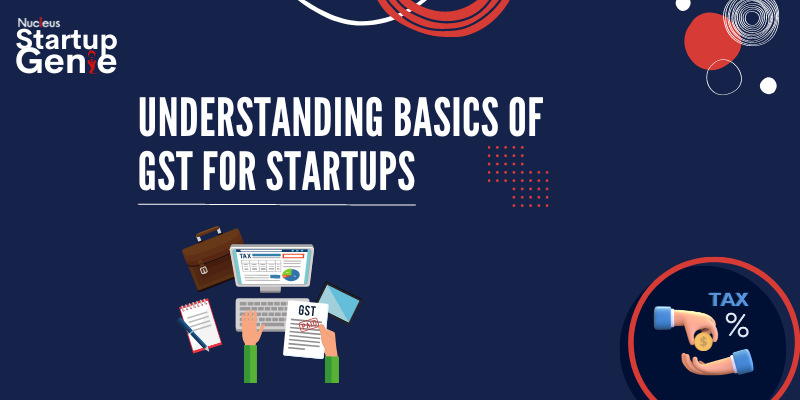
Understanding the Basics of GST for Startups
GST, or the Goods and Services Tax, is an indirect tax that is levied on the supply of goods and services in India. It is a comprehensive tax that has replaced several other indirect taxes that were previously in place. For startups, there are several important details regarding GST that they should be aware of:

Following are the points which a startup must keep in mind while kickstarting business:
1. GST Registration
2. GST Compliance
3. GST Rates
4. Input Tax Credit (ITC)
5. GST Council
6. E-Way Bill
7. GST Audit
1. GST Registration:
Every business with a turnover of more than Rs. 20 lakhs (Rs. 10 lakhs for northeastern states) is required to register for GST. Startups should ensure that they register for GST in a timely manner to avoid penalties and legal issues.
2. GST Compliance:
Once registered, startups must comply with the rules and regulations of GST. This includes filing monthly or quarterly returns, maintaining proper records and invoices, and paying GST on time.
3. GST Rates:
GST is charged at different rates for different goods and services. Startups must be aware of the applicable GST rates for their products or services.
4. Input Tax Credit (ITC):
Under GST, businesses can claim ITC on taxes paid on purchases. Startups should maintain proper records of their purchases and claim ITC to reduce their tax liability.
5. GST Council:
The GST Council is responsible for setting GST rates, making recommendations on GST policies, and resolving disputes related to GST. Startups should keep themselves updated on any changes or updates made by the GST Council.
6. E-Way Bill:
For the movement of goods worth more than Rs. 50,000, an e-way bill must be generated. Startups should ensure that they generate e-way bills for their goods to avoid legal issues.
7. GST Audit:
Businesses with an annual turnover of more than Rs. 2 crores are required to undergo a GST audit. Startups should be prepared for the audit and ensure that they comply with all GST regulations.

